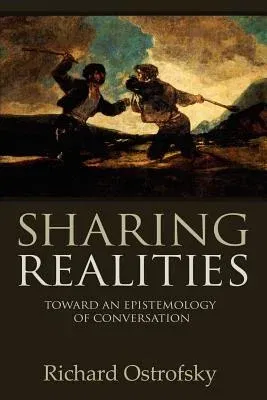Richard Ostrofsky
(Author)Sharing Realities: Toward an Epistemology of ConversationPaperback, 27 October 2005

Qty
1
Turbo
Ships in 2 - 3 days
In Stock
Free Delivery
Cash on Delivery
15 Days
Free Returns
Secure Checkout
Print Length
260 pages
Language
English
Publisher
Lulu.com
Date Published
27 Oct 2005
ISBN-10
1411656164
ISBN-13
9781411656161
Description
Product Details
Author:
Book Format:
Paperback
Country of Origin:
US
Date Published:
27 October 2005
Dimensions:
22.86 x
15.24 x
1.5 cm
ISBN-10:
1411656164
ISBN-13:
9781411656161
Language:
English
Location:
Morrisville
Pages:
260
Publisher:
Weight:
385.55 gm

